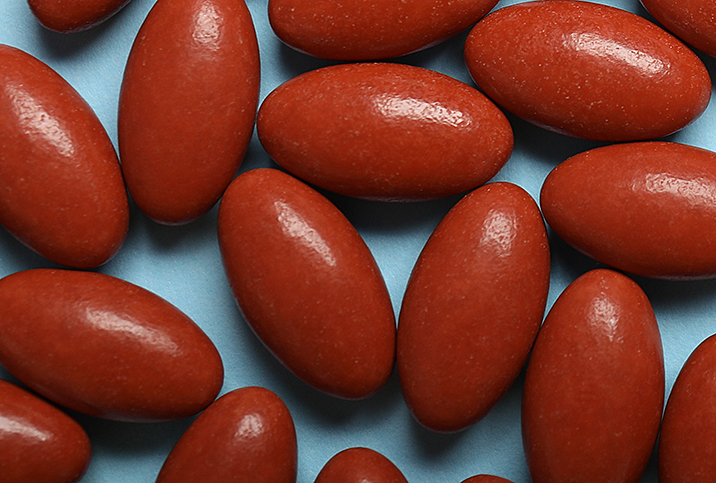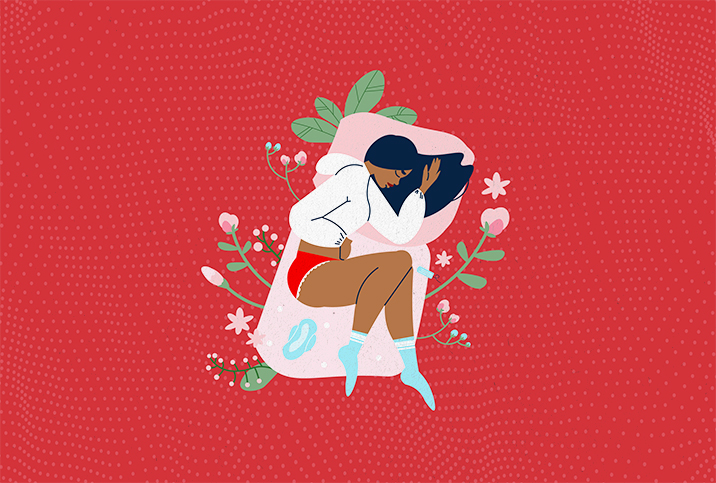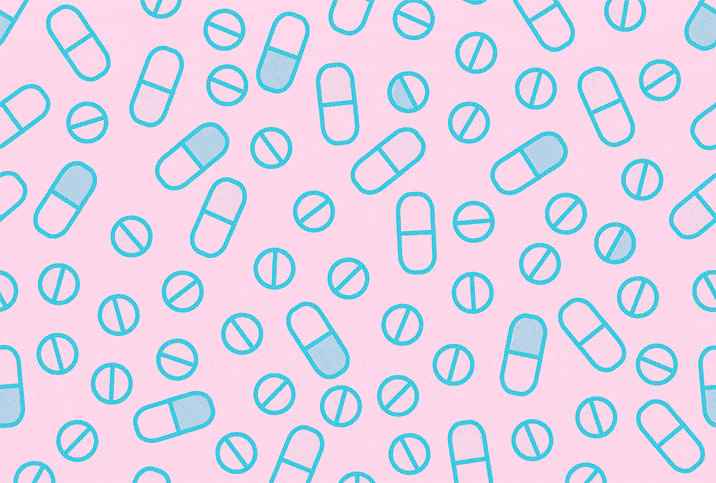Sex, Vitamins and Minerals

Key Points
- Minerals play a crucial role in maintaining sexual health and are especially beneficial for those with nutrient deficiencies, but there are health risks.
- Zinc is linked to improved sexual desire, arousal, orgasm and satisfaction.
- Magnesium contributes to sexual health by allowing for increased blood flow and muscle relaxation.
Every day, we're bombarded by messages recommending a bevy of vitamins and minerals we need for a healthy body. Faced with a multitude of confusing meal plans, pyramid schemes and unfamiliar dietary supplements pushed by influencers on social media and marketers across the globe, it can be difficult to separate fact from fiction.
How can minerals impact your health?
While some minerals carry a positive reputation—such as the salt lamps that decorate homes with hopes they'll release negative ions into the air—there are some required by our bodies to function.
Minerals are inorganic elements found in water and soil, which are consumed by animals or absorbed by plants, and later consumed by humans. Sodium and calcium are two of the most well-known minerals that affect and maintain basic functioning, such as the ability to use our muscles.
During digestion, your small intestine absorbs the majority of nutrients from your food and your circulatory system transports minerals and vitamins to the rest of your body, according to the National Institute of Diabetes and Digestive and Kidney Diseases.
Your blood system plays an important role in this process. Nutrients are absorbed into your bloodstream and carried to the liver, where they are stored, processed and distributed to the rest of your body, where and when they're needed.
Dietary supplements 101
In an effort to reap the benefits minerals provide, millions of people take dietary supplements. The global nutritional supplements market exploded during the COVID-19 pandemic and is expected to grow to $389.38 billion in 2023, according to an April 2023 report.
These supplements come in a variety of forms, from capsules to gummies, and usually include:
- Herbs and botanicals, such as ginger and dandelion root.
- Minerals, such as zinc and iron.
- Fat-soluble vitamins such as A, D, E and K. The body absorbs these vitamins more easily in the presence of dietary fat.
- Water-soluble vitamins such as B-complex and C. These vitamins are not stored in the body and need to be replenished on a daily basis.
Dietary supplements can be beneficial, especially for people with nutrient deficiencies, but they do not come without health risks, according to the United States Food and Drug Administration (FDA).
Recommended
- FDA Launches New Dietary Supplement Education Initiative: Consumers can now get better educated about over-the-counter products they might be considering.
- The Facts About Supplements: Exercise and meditation can enhance sexual performance, but what if you take supplements, too?
- Is Your Birth Control Pill Causing Nutritional Deficiencies?: Whatever the reasons you take the pill, everyone should be aware there are both benefits and risks.
If you take dietary supplements, you should not exceed the recommended daily dosage, as doing so may result in adverse side effects such as cramping and diarrhea. You should not mix and match supplements, either.
For example, if you take supplements containing 25 mg or more of iron while taking zinc supplements, your body may not be able to absorb the zinc effectively, according to the National Institutes of Health Office of Dietary Supplements (NIHODS).
Additionally, do not replace any prescribed medications with supplements, unless advised to do so by a medical practitioner. As a general rule, do not use any dietary supplement without the approval of your healthcare provider, as an active ingredient in whatever you've decided to take could interact with a prescribed medicine you're already taking.
Sex, supplements and minerals
If your goal is to improve your sex life, there is no one-size-fits-all, quick-fix pill, said Michael Green, M.D., board-certified OB-GYN in Northridge, California.
"There isn't so much a super-mineral cocktail or mineral 'Viagra' that will enhance your sex life," Green said.
Rather, he suggested people should follow the advice doctors consistently share:
"Maintain a balanced diet because it's essential to a person's well-being, including sexual health and functioning," he said.
In recent years, there has been a growing interest in understanding the connection between diet and sexual function, according to a review of 13 research studies observing diet and erectile dysfunction (ED) published in January 2018.
Here are three minerals that may impact your sex life and the various foods you can begin eating to reap their benefits:
How does iron affect my sexual health?
Iron is the most abundant mineral in the human body. According to the National Institutes for Health (NIH), the recommended daily amount of iron adult men and postmenopausal women require is 8 mg. For women aged 19 to 50 years old, the daily requirement is 18 mg, and that increases to 27 mg each day for pregnant women.
"It's vital to sexual health and function because it contributes directly to our energy levels and stamina," Green said.
Iron has been shown to improve the sexual function of women with iron deficiency anemia (IDA), according to a July 2023 study.
For men, it's important to be mindful of the intake of iron since too much or too little can contribute to ED.
Heme iron—a type of iron present in meat, seafood and poultry—is the easiest for our bodies to absorb and contributes to 10 percent or more of the total iron we absorb.
Although a diet rich in beef, chicken and oysters can help you reach the recommended dietary allowance, vegetarians might want to consider the following:
- Chickpeas
- Dried beans and lentils
- Figs
- Tofu
How does zinc affect my sexual health?
Zinc is the second most abundant mineral in the human body following iron, and it plays an essential role in overall health, including sexual health and function.
The recommended requirement for zinc each day is 8 mg for adult females and 11 mg for adult males.
"Zinc can impact sperm production and their ability to swim, which is referred to as sperm motility," Green said.
Zinc is associated with increased testosterone levels and sexual pleasure. According to a 2021 study that measured the impact of zinc on postmenopausal women's sexual function and testosterone levels, participants reported higher levels of testosterone and improved sexual desire, arousal, orgasm, satisfaction, vaginal moisture and a decrease in pain during intercourse.
For men, according to a 2016 study, zinc has been shown to help men who experience premature ejaculations (PE). When used alongside other vitamins, zinc significantly improved ejaculatory control and the quality of sexual life.
The best way to get more zinc is to incorporate more meat, fish and seafood into your diet, according to the NIHODS. Oysters are a quick and tasty way to increase your intake because they pack more zinc per serving than any other food, as one raw oyster can pack as much as 5.5 mg.
Tainted Love—Some Sexual Supplements Have Hidden Ingredients: "What's the harm in popping a supplement to help your penis pop up?" The harm may come from side effects or adverse interactions with prescription medications. Men, steer clear of knockoffs and get the real deal: Safe and effective prescription ED meds.
While oysters may be the easiest source of zinc, lean cuts of beef—such as short ribs and top loin—and ground beef, as well as pork are all good sources, too. Breakfast cereals are a popular source in the U.S. since so many are fortified with a variety of minerals including zinc.
Dairy products and eggs also contain zinc and, although our bodies absorb zinc from animal products more easily than plant products, beans, nuts and whole grains are additional sources.
How does magnesium affect my sexual health?
The daily requirement for magnesium is 310 mg to 320 mg for adult women and 400 mg to 420 mg for adult men, according to the NIH.
"Magnesium helps our neurotransmitters function properly and allows our muscles to relax," Green said.
Nisarg Patel, M.D., a board-certified obstetrician and gynecologist in Ahmedabad, India, said, "magnesium plays a key role in sexual activity because it allows for increased blood flow, and, therefore, greater performance."
There may be a connection between magnesium, erectile dysfunction and premature ejaculation, however research remains inconclusive. However, sexual activity can require a lot of energy and there is a connection between magnesium and your body's energy levels.
One way to include more magnesium in your diet, is to eat one cup of roasted pumpkin seeds providing 168 mg of magnesium, according to the U.S. Department of Agriculture. Nuts and seeds, such as almonds and chia seeds, are packed with magnesium.
According to Cleveland Clinic, legumes, whole grains and dark, leafy greens are good sources. Guacamole or avocado toast work as well. And if you're looking for a sweet treat full of magnesium, look no further than dark chocolate.
The last word
The safety and labeling of dietary supplements may not have been evaluated by the United States Food and Drug Administration (FDA). You should also bear in mind that the clinical effects and side effects of dietary supplements—as well as their interaction with already-prescribed medicines—can be difficult to predict.
The efficacy of herbal and botanical supplements may be influenced by the plants used, how they’re harvested and processed and the concentration of active compounds.
Discuss any plans to add a supplement to your diet with your healthcare provider.


















